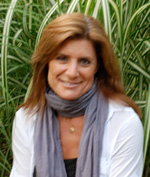Chicago entrepreneurs in the clean-tech sector are making time for a networking event that’s gaining popularity.
The Chicago Clean Energy Alliance has amassed an email list of more than 6,000 individuals who either work in the clean-tech industry or in a related field, says David Carman, one of the alliance’s co-founders. Mr. Carman, a former options trader at the Chicago Board Options Exchange and currently president and CEO of Business Network Chicago, says the group was formed by people who want to see growth in the renewable energy sector even though they generally aren’t active players in that market. The other co-founders are Bryan Villano, Darrin Stern and Dan Fedor.
The CCEA is a volunteer-run organization that focuses primarily on organizing quarterly networking events around Chicago. Unlike the Clean Energy Trust, the alliance doesn’t have staff to offer mentoring.
However, both organizations now have one feature that’s similar: a fast-pitch competition that invites renewable energy companies to present their business models to a panel of judges. Winners either get cash prizes (from the Clean Energy Trust) or move on to the next round (after the CCEA) for a shot at getting face time with prominent investors. Participants at the Clean Energy Trust event typically are early-stage firms.
Last month, the CCEA held its first live Clean Tech Competition where 10 later-stage companies pitched their stories to 10 judges and about 125 attendees. Of the total, six companies were selected to move to the next round of fast pitches that will be run by the Global Cleantech Cluster Association in Savannah, Ga., next October. The GCCA has 38 member groups worldwide, including the Chicago alliance.
Midwest players among that group heading to Savannah include H.E. System Technologies and Xolve.
Crain’s met up with Mr. Carman after the recent fast-pitch competition to talk about how the Chicago alliance fits into the local green business landscape.
Crain’s: How long has CCEA been around and why was there a need to form this organization?
Mr. Carman: We had our first networking event in December 2009 at the Mid-America Club. We knew we were onto something when we had to close registration before the event because we already hit the max at 500 people. We wanted to start a network to bring out the top players in Chicago working in clean energy or related to it in some way. A more typical gathering these days brings in 150 to 250 people.
We also want to showcase promising clean-tech technologies. At one of our events, we brought out a Tesla ($100,000-plus electric car), a Chevy Volt and others for people there to check out. We even had an electric motorcycle at the 95th at the top of the (John) Hancock building for people to drive around up there. We can’t show a wind farm, so there’s limits to what we can do.
Crain’s: What else happens at the events you organize?
Mr. Carman: We always have a speaker or panel discussion. We’ve brought in state representatives and senators to talk to our members. We also have people come and talk about cutting-edge ideas and disruptive technologies. We haven’t made a concerted effort to reach out to venture capitalists, but some of them show up at our networking events. We’re still evolving.
Crain’s: How would you characterize the availability of Midwest venture-capital investment dollars in the renewable energy sector?
Mr. Carman: Getting funding for clean tech is tougher than getting into an Ivy League school. There are some sources of capital for clean tech in Chicago, but it’s not easy to get. The hottest area right now is in the digital space, and few of those companies are actually getting funding. The returns on clean tech haven’t been as great as those at digital companies and (the clean tech businesses) won’t ever go viral. There aren’t going to be any Facebooks in this sector.
Crain’s: Do you have any predictions about future VC funding for local entrepreneurs pursuing renewable energy products and services?
Mr. Carman: I don’t think this space is going away anytime soon and I think it will thrive. But many government subsidies are coming to an end and the big money often goes to a few concentrated deals. I’m sure there will be a lot of (VC) money, but startups are inherently risky and you’re trying to get someone to give you their hard-earned money. Getting funding is like a crusade: You have to beat the drums consistently.
Crain’s: When is the alliance’s next gathering?
Mr. Carman: Sometime in June, but we haven’t set an exact date or location yet. We’ll post it on our website soon.


